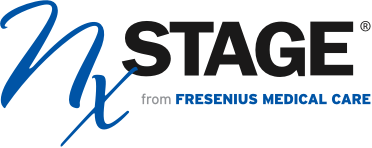Transcript
Vanessa:
Hi everyone, and welcome to Visits with Vanessa, a podcast where we speak with home hemo patients, care partners, and industry professionals about home dialysis. I’m actually a dialysis patient myself. I’ve been on dialysis for 25 plus years. I’m also the senior manager of advocacy and communications at Fresenius Medical Care Medical Care. I have a special guest with me today. I am so excited to welcome Dave. He’s the VP of Customer Success on the NxStage team. Dave actually has 42 years of experience in service management and lots of great information to share with us today. Dave I’m so excited to talk about the NxStage customer service team and the different ways that you guys help support patients every day. Thanks so much for being here today.
Dave:
Well, thank you, Vanessa. Thank you for inviting me and it is a pleasure. There’s nothing I like to do more than talk about what my team does to support our home patients. It’s an incredibly complex ecosystem that we manage because anybody who has done home hemo as yourself knows that this is this is not easy, there’s a lot to it, and what we try to do is make it as simple and easy as possible.
Vanessa:
Okay, awesome. So I want to start by just getting to know you, Dave. Like, tell me a little bit about your background. How did you even get into the customer service industry?
Dave:
Well, it’s an interesting story. I, I started out my professional career as a musician being a professional French horn player. I started that when I was 14. I dropped out of high school in the 10th grade and moved to New York City and started playing in Broadway pits for a while. And then I ended up going to school for music at the Eastman School of Music in Rochester, New York. But somehow, with studying music, I ended up also getting a degree in electrical engineering. So a little bit of a U-turn on that or hard left turn, whatever.
Vanessa:
Wow, I’m going to I’m going to admit, I didn’t even know that about you. That is very cool. Very cool. So you’re a musician slash engineer?
Dave:
Yep. That’s. That’s what I would call myself. And then when I graduated from college, six months after I graduated from college, I started a startup company in the services business in health care, providing medical communication services. And then I ran that for ten years, raised some venture capital for that, about $10 million in venture capital, eventually sold that to a to a private equity firm and then started another company and ran that for a number of years. And then I found, you know, I felt like I had maxed out the small company world and I really wanted to try something different. So I went to work for Philips Health Care, and I really enjoyed the complexity of a large multinational organization and had a number of different postings there. But then unfortunately, in 2011, my wife had an accident and is a paraplegic now and is it caused me to take a year off, to redo our home and do some other things. I mention that accident because the understanding of what it’s like to deal with medical difficulties is what really inspires me, empowers me to do what I do at NxStage. And even though paraplegia and kidney disease are not the same, there’s a lot more similarities than you would think in that the burden of carrying on your life with a disease category that’s very onerous is challenging. So, yeah, I intended to go back to Philips after my sabbatical, but ended up finding NxStage and being lured into the story and you know what Jeff Burbank, the original founder, had created here, and I’ve loved it and been here ten years and can’t think of ever doing anything else.
Vanessa:
Wow, so first of all, I, I just want to go back to thank you for sharing your personal journey there, because I think for our listeners, you know, the patients that are out there and their families, you know, they’re really going to resonate with what you just said, because when you are a patient, particularly with a chronic illness, you know, it is a it’s a continuous illness that there’s there’s always things that come up and sometimes, you know, you have good ways of dealing with it, but there are always bumps in the road. So to know just kind of your own personal background and why it’s important and what it’s like to be a patient and what it’s like to be a care partner, you know, to a patient and a family really does, I think, resonate with patients. And for me, it really makes me understand and I’ve known you for a while, but just really kind of understand, you know, why you do what you do. So I, I really appreciate that heartfelt kind of transparency. So you came to the NxStage and, you know, clearly there was a mission, right? We were going to revolutionize the dialysis space with the NxStage machine. You’ve been here about ten years now, so can you talk to me a little bit about before we get into there’s kind of two sides that you lead, right? There’s the technical support side and there’s customer service. So before we kind of dive deep into the customer service side, which is really what we’re going to be concentrating on today. Do you mind just giving us like a little bit of a brief overview of kind of your role and what you do?
Dave:
Well, my job is to support those teams, right, to make sure that, the customer service team, the technical support team, I also see all the oversee all the repair operations globally for our the different service models we have around the world. And you know, all those come back to the same thing, making sure we prepare and support patients as best we can for for the road ahead of them. And you know, I can’t overemphasize, you know, being a home patient is, is challenging. And I’ll give you an example in tech support, when I first took over tech support, what I found was some, you know, wonderful people, but we have wonderful people across my organization, but the like the technical support team was very technically focused, not surprising right. And what was perceived as the best was the people who were best at solving the technical problems. But what I found in listening to calls and I actually try to listen to a handful of calls every single week just to stay connected to our agents and our and our patients so I can hear what they’re saying when they’re when they’re calling us.
And you know, what I heard when I first started listening to those calls was, um, yes, they need their alarm cleared, but more than anything, they need reassurance. They need they need to feel like they’re supported. They need to know that no matter what happens we’re going to get them back and going again, you know, whether it be just by troubleshooting, by swapping equipment, by, you know, trying some different disposables and trying some different things, you know, we’re going to help them and we’re going to be there. And it’s that whole idea of empathetic support has become the main hiring, you know, criteria for both customer service and technical support. We want to hire people that understand what it’s like to live with a chronic disease that is challenging and, you know, the, the technical things or the, you know, the administrative things that customer service deals with you know, as long as people have a reasonable aptitude for those things, you know, they’ll learn them and you can teach those. But it’s very hard to teach empathy. It’s very hard to teach emotional intelligence so that people can, you know, sense the situation and know how to handle things. So that that’s the main focus of what we do is is helping people and understand what we need to do to help them.
Vanessa:
Yeah, and that that makes sense because I agree, it’s hard to teach someone how to be empathetic. Right? You, you either are or it’s it’s part of your persona or you’re not. But like the technical stuff, you know, you can teach someone how to input things in a spreadsheet and ask questions, etc.. But you know, that caring piece I’d like to think that everybody on your team is really, you know, that’s what they lead with. Let’s focus a little bit on the customer service side of your business for our call today, and maybe we’ll have you back to talk about, you know, the technical side of it in the future. But I did hear you say that, you know, really with either team in general, you know, you’re you’re kind of looking for someone that has that empathetic character and leads with empathy. Once you kind of have checked that off and you’re like, yes, you know, they seem to have those qualifications. What does the training look like for someone that is a new candidate that’s going to be a customer service rep. And, you know, customer service are people that that take care of, you know, doing your sometimes they might do swaps that might be tech support, but it’s also doing all of your supplies and ordering. So what are the skills that they need to have as well?
Dave:
Okay well, let’s start with a good definition of the difference between tech support, customer service, so that that’s very clear. The way I look at tech support is, you call them when you are having trouble with, you know, making a batch and a treatment and you need some technical help in resolving that issue. The customer service side is more the making sure you have everything you need to treat, right. There’s a lot of different components to the treatment to make a batch, to do the treatment number of different disposables, a number of different pieces of equipment. If you don’t have what you need to treat, that’s when you call customer service. They’re there to make sure you have all the pieces of the puzzle to, to, um, make a treatment possible. So that, that that’s kind of the difference. But of course there is always some overlap because when your equipment’s not working, you know where it, or you don’t have the right equipment or you say my warmers not working, what do I do? And you know, sometimes people will go one versus the other, but it’s, you know, that that’s the main division between the two.
Vanessa:
That makes sense. And so what is the training like for customer service? So you hire so you hire a new person, you know, do they train in a day? Is that weeks of training? What does that look like?
Dave:
Yeah, it’s weeks of training. And, you know, we use a couple of different tools that we have to get people familiar with. Salesforce is our Salesforce.com is our main CRM customer relationship management tool. So being able to when you use Salesforce you create a case and a case is about a missing disposable, a case is about a box of cartridges that are damaged, things like that. So they have to know how to create cases, right? And that’s a basic skill they need, being able to create orders. When they come in, if, if a box of cartridges is damaged, they have to be able to create an order for a box to replace that and make sure that gets processed. And we use an internal system called IFS where orders are placed. So, you know, there’s the different mechanics of it, but then there’s the, we do a number of different things, you know, going back to empathy and emotional intelligence, we do some training. You know, I, I’d say about a third of it is empathy training and understanding what it’s like to be on dialysis. So we, you know, we orient them to the equipment even though they don’t tend to deal with the equipment on a daily basis, knowing what a setup looks like that that a patient is going to be in front of is really important for them because it grounds them in knowing, you know, just having a better idea of what the patient is dealing with. So we orient them to the equipment, give them a little bit of an idea of how it all works and what the different pieces are. Of course, you know, knowing their pieces that they’re mainly responsible for, , you know, the disposables and all, all that area stuff and making sure that, you know, they understand the process of how we gather inventories and then send out their orders and that we can help patients select like, I’ll give you a good example of something that, you know, they’ll counsel someone on. You know, we offer multi-month. Multi-month is a great way to reduce the number of shipments you have, but it also increases the amount of stuff you have to have at any one time. You But you know, when you have 12 deliveries a year, you know, you have to be there and ready to take those 12 deliveries.
When you do it every other month, you only have six deliveries a year. And some people like the lower number of deliveries, but they have to know that, geez I need a little more space to store my stuff when you’re having two months on hand rather than one month. So you know, being familiar with all those ins and outs of our therapy and how it works and being familiar with all the different pieces of it so that they can order the right parts and help our patients have everything they need to treat, you know, the ultimate function. So it’s really a combination of that understanding what kidney disease is about and what our patients are facing, understanding our equipment, understanding our systems that we enter the different pieces of information into. And you put that all together and, and it’s generally you know 3 to 6 weeks of formal training and then it’s another 3 to 6 weeks of, you know, we have a mentoring program where when they start taking calls, someone will be working with them and listening with them and helping them because it is pretty the best training in the world when you start having a patient in your ear and the real life situation, it’s great to have that help. So we do some mentoring and then we transition them to solo.
Vanessa:
First of all, love it. Everything that you just said, I’m like writing notes down as we’re talking because I feel like there’s a couple of really cool things that you said. So number one, clearly the people on the other side of the phone need to understand, like what does the dialysis equipment look like? Two you talked a little bit about, you know, supply delivery.
And the key that I think getting out of what you’re saying is that they’re options and that it’s not necessarily a one size fits all. So you’re kind of building that relationship, you know, with the patient to understand what works for you. Let me tell you, you know, what options we have. And thirdly, and my favorite and anybody that knows me is going to say, of course, this resonates with you is the mentor program. There is nothing better than a peer talking to a peer. I don’t care what industry, what you do, how you do, clearly I feel in the dialysis world there’s nothing better than a patient talking to a patient. But even in this type of a situation where you are talking to patients and you’re talking about important, you know, medical equipment that needs to be delivered, and sometimes people might be agitated or upset or there’s a lot going on. I love that you guys do this mentor program where you’re kind of shadowing a more seasoned customer service rep to kind of hear how they work through their calls, and you learn by the trainer, right? So you’re learning kind of by listening. And I think that that’s key to success. Love that. Really do.
Dave:
Absolutely. Yeah. I mean, yeah, there is really no other way to do it and that it, you know, if we put people on the phone solo right after training it, it, it just would not be experienced for, for anybody.
Vanessa:
I can only imagine knowing this. So what, what does your team actually look like. How many people do you have? Like what is the total number of years of service?
Dave:
You know, we have a pretty varied team and customer service. We have a lot of people who have been with us a lot of years, 10, 15 years in many cases, because of the growth of home. We also do have a lot of newer people. We also try to hire bilingual people when we can, bilingual or trilingual or I, you know, even more than that. So, you know, we can help as many patients in a language that’s comfortable to them. So we have a lot of different types of people. And again, I think the main thing it comes back to is getting people who can have some empathy and understanding a lot of times will look for when we’re talking to people who have cared for a, you know, ideally if they’ve, you know, cared for or been involved with a patient that has dialysis, you know, but you know, that’s pretty hard to find in hiring people for these roles. But you know, people have had support of an aunt or an uncle with cancer with paraplegia, with other types of debilitating diseases so that you have some idea of how hard things can be. A lot of times those people have a lot more empathy and understanding because, you know, unless you’ve lived it and you know, I share that very personal example of going through with my wife, seeing what it’s like to being a normal functioning adult, to someone who’s in a wheelchair.
You know, it’s bewildering and understanding what that transition is like and being empathetic and understanding of that is what we look for. And, you know, sometimes we can find people with more of that and that’s what we try to do. But, you know, sometimes we have to focus more on the technical skills of, you know, having experience with CRMs, entering orders and things like that.
Vanessa:
So I’ve got a couple of stats here that I just want to talk to you a little bit about. I find them really interesting personally, myself as a patient and honestly very reassuring when I when I look at the numbers. But it seems like it or I’m reading a stat here that tech support actually takes about 5000 calls a week, but you have people on staff 7 hours, I mean, seven days a week, 24 hours a day, and that you actually answer 80% of the calls within 20 seconds.
Dave:
Yep, yep. That’s what’s called our service level. That’s what the contact center industry refers to as service level. What percentage of your calls and you’re usually trying to achieve, you know, you’ll never achieve 100% of your calls in any at any time period. But the industry standard is to use 80% and then you set that you want it to be 20 seconds, 30 seconds, 60 seconds. And for both our tech support and our customer service we decided that the 20 seconds is and that’s about three rings, three or four rings in a traditional phone system, you know, that answer staffing so that most, 80% of our customers get that 22nd experience is what we do.
Vanessa:
Yeah. And I have to say as a patient myself and I have experienced calling, you know, I’m always happy to hear the voice on the other end right. And it’s nice that they’re there pretty quickly. I have another stat here that actually 90% of the calls are what we would call a first call resolution, meaning that no callback for the same issue. In other words, you able to resolve it like 90% of the time and they’re not calling back with, you know, the second time that the same thing. Same thing. Same thing.
Dave:
Yeah. And that that’s a testament to the diligence of our people. And we’ve also, you know, we train them well on both the customer service and the tech support side to follow, you know, scripting so that they are consistent. You know, one of the things they’ve found in contact centers in a lot of different things is, you know, a checklist is really important because even though you think you know it really well, for example, I’m, I’m a pilot and about 100 planes land each year in the U.S. with their landing gear up. And you say, you know, how could that happen? Right? They’re generally very experienced pilots, but the 95% of the time that the plane lands with its gear up is because they didn’t follow a checklist. So like, even the most seasoned and experienced people need checklists. You know, when we’re flying on commercial airlines, those pilots upfront are using checklists for everything they do. You know, we try to do the same thing with our in our contact centers to make sure that there’s nothing we forget. So whether it’s taking an order, whether it’s, you know, debugging an air alarm or other alarm condition, you know, we have tech support notes on the tech support side and procedures on the customer service side that follow everything, that show them everything they need to do. And, you know, a lot of the experience, people that, you know, they don’t have to sit and stare at it. They keep it off to the side. But, you know, they make sure they’ve hit all those different things because, you know, you take a lot of calls and it’s easy to drop one of them on…
Vanessa:
Totally.
Dave:
You want to make sure every time we do all the things that we need.
Vanessa:
I you know, I mean on a different topic, but as you know, I travel a lot and even as much as I travel and I take the machine and go places, I have a checklist, right? Like I just kind of go through and check things off because it’s easy to forget, you know, just as much as you’ve done it. So my last stop here is actually on customer service. So I have that you take about 300 calls a week. You guys are basic.
Dave:
3000.
Vanessa:
3000, sorry, 3000. Missed a zero. That’s a big one. You’re open 12 hours a day, basically, you know, Monday through Friday. I know you also have on call people on the weekends, but I also have here that 80% of those calls are answered within 20 seconds.
Dave:
Yeah. Yep. Yeah. We use that same service level on both because, you know, whether you’re got a box of damaged cartridges or you are having an air alarm, you know, like you said, that hearing that voice quickly is really important. Yeah. We also try to be very methodical. Like most contact centers, you do have to navigate a few menus and that’s, but we try to limit that to no more than three menus ever. You have to go deep so that there isn’t too long before you can talk to a person and the only reason we try to collect that information beforehand is so that we can get you to that right person, Right? Because whether it’s a new patient start rep or just a regular customer service rep or a specifically trained tech support rep, we want to get you to that person. So but we’re very methodical and thoughtful about the number of prompts and then the amount of time you have to wait and then you get the agent.
Vanessa:
Good. I like it. I like it. Dave, Thank you so much for sharing all the information. And honestly, we’re running out of time here. So with that, I wanted to ask you, do you think you can come back for a part two? There’s so much more that we can talk about.
Dave:
Absolutely. Vanessa. This this has been very enjoyable. Be happy to share more information.
Vanessa:
That will be great. I really look forward to that. So to our listeners, if you have any questions and you want to learn more about home hemodialysis, please call one of our patient consultants. You can reach them at 1-888-200-6456 or go to NxStage.com. Our consultants are all current or former dialysis patients and they look forward to speaking with you.
It’s important to note that not all patients may experience these benefits. And with that, I look forward to Dave coming back and chatting with me again next time. Thank you for joining us on our episode of Visits with Vanessa. Bye for now.















